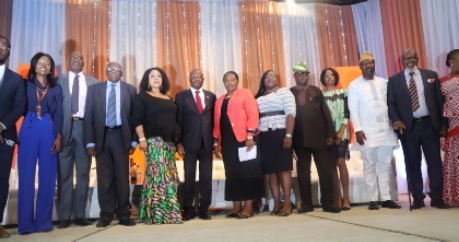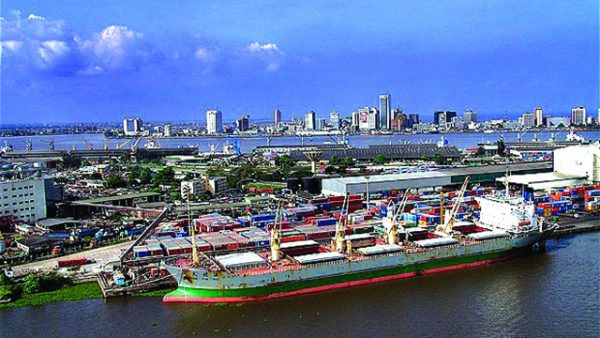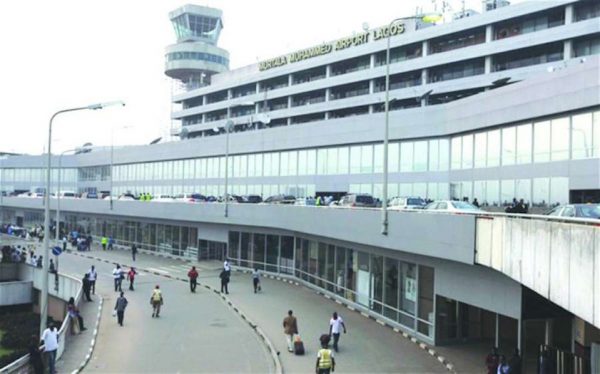Experts Ponder Headway For Maritime Sector At 4th TAAM Conference

Veterans from various parts of the maritime sub-sector have agreed on the need to devise a strategic framework that guarantees innovations and sustainable solutions that to address the problems in the industry and achieve a greater level of growth.
This was the submission of experts at the fourth edition of the Taiwo Afolabi Annual Maritime (TAAM) Conference, which held at the University of Lagos (UNILAG) recently.
The Chairman, Nigerian Ports Consultative Council, Otunba Kunle Folarin stressed that Nigeria’s maritime sector has endowments that could easily transform the sector into becoming a leader in Africa.
He said: “Nigeria’s maritime domain consists of 932 nautical miles coastline, 12 nautical territorial waters, 200 nautical miles exclusive economic zones, international indigenous shipping average of 5307 vessel calls per year, 572 kilometer inland water ways, 16 functioning ports, 8 littoral states, 28 concessioned terminals and thousands of workforce in the port and maritime industry.
“These endowments give us the edge to become the leading light in Africa. Government and all stakeholders must set a deliberate agenda on how these endowments can be properly harnessed to sustain the growth already achieved in the maritime sector. There is a new economic agenda for the maritime sector. This new agenda can be successfully executed with sustained port reforms and local participation policies.”
Dr. Taiwo Afolabi, Group Executive Vice Chairman, SIFAX Group, which the conference was organized in his honour, said a strong implementation mechanism for its various policies and reforms were necessary to accelerate growth.
Afolabi, who was represented by Mr. Adekunle Oyinloye, Group Managing Director, SIFAX Group, said, “Nigeria’s maritime industry has overtime seen various policies such as the port concessioning reforms, truck standardization policies, cabotage law, maritime safety laws and several others with the sole aim of eliciting growth in the sector. But, may I say that while some of these policies have catapulted the industry to its next level growth, a strong implementation mechanism is strongly needed.”
He further noted that reforms in the sector must go beyond the ports, adding that a holistic approach, including legislation, infrastructure, transportation, security and funding among others, must be adopted.
“I will like to appeal to the Federal Government and its relevant agencies to further fortify the nation’s coastal areas and maritime boundaries against maritime crimes. I will not fail to give kudos to NIMASA and other agencies for getting the presidency to assent to the anti-piracy bill recently. It should not just end here alone, there should be a campaign for more funding for maritime security. The insecurity on the waterway has led to shipping lines introducing war risk surcharges on consignments heading to Nigeria”, he expressed.
For Hassan Bello, Executive Secretary/CEO, Nigerian Shippers Council, the government is constantly ready through the various ministries to continually engage all stakeholders in the sector.
“First, I must commend the organisers of this event and add that we are ready to partner with all stakeholders including the universities in order to make sure that the maritime sector achieves its mandate. We believe that constant dialogue through a forum like this will help us bridge the missing links in the sector and move the sector to its next level growth”, he said.
Top industry players who functioned as panelists at the conference including; Princess Vicky Haastrup, Executive Vice Chairman, ENL Consortium and Chairman, Seaport Terminal Operators Association of Nigeria; Prince Olayiwola Shittu, CEO Skelas Limited and immediate past Chairman, Association of Nigeria Licensed Customs Agents (ANLCA); Adetola Bucknor-Taiwo, Partner, Paul Usoro and Co and Mrs. Rollens Macfoy, Executive Director, Operations, Ocean Deep Services all unanimously agreed that for the sector to truly continue on its upward trajectory, there is a need to review some of the existing laws and promote on all fronts local participation in the sector.







